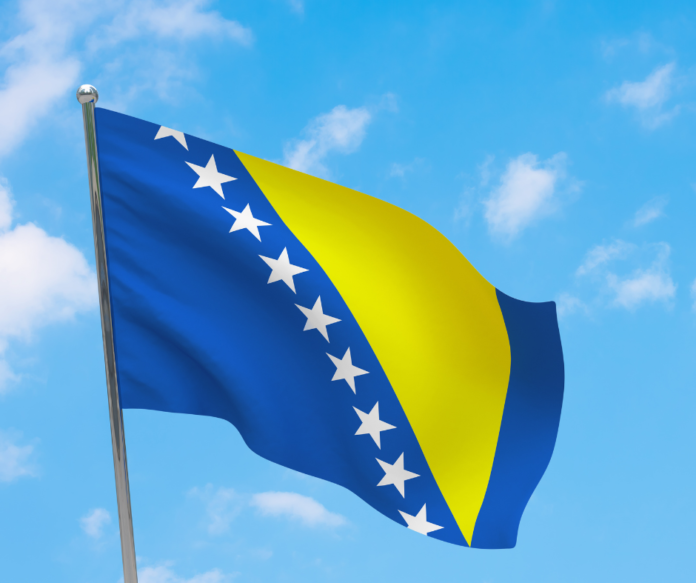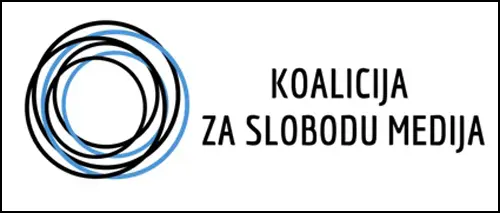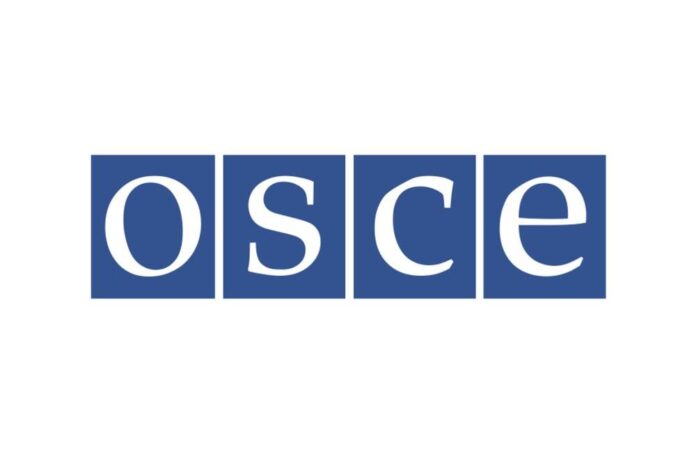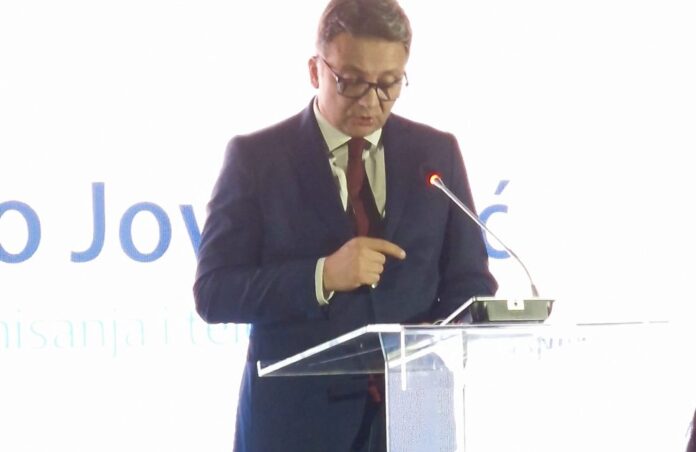Ovo je još jedna u nizu zakonskih odredbi kroz koje Vlada forsira nešto što sama ne može riješiti. Mislim da je dobar dio tih zakonskih odredbi promašen i neće ostvariti svoj cilj, ocijenio je sudac Vrhovnog suda Damir Kos na okruglom stolu „Tajnost istrage – narušavanje slobode medija i kazneni progon žrtava, okrivljenika i branitelja“, koji je održan u Novinarskom domu u organizaciji Centra za demokraciju i pravo “Miko Tripalo” i Hrvatskog novinarskog društva.
Kos je govoreći o predloženoj novoj odredbi o kaznenoj odgovornosti za neovlašteno otkrivanje sadržaja izvida ili dokazne radnje kazao kako je ona koncipirana tako da postoji kaznena odgovornost izvršitelja osoba koje su uključene u kazneni postupak: policije, branitelja, vještaka, okrivljenika…
– Međutim na koji način oni mogu to učiniti? Na primjer, kada novinar pita odvjetnika za informaciju o tome što je bilo i ovaj mu odgovori. Novinar tada postaje poticatelj na kazneno djelo i ulazi u sferu kaznene odgovornosti, jasno je objasnio Kos, koji je naglasio kako iznosi svoje osobne stavove, ali da veći dio kolega s kojima je razgovarao dijeli njegovo mišljenje.
Napad na novinarsku profesiju
– Ovo vidim kao napad na novinarsku profesiju jer nema transparentnosti pravosudnih postupaka bez medija. Naš je interes da javnost zna i da bude informirana, kazao je Kos te dodao kako je komunikacija bez medija manjkava i prema medijima se mora biti otvoren. Također je dodao da ovaj postupak vidi kao nevješt pokušaj kastriranja medija i da ne bi htio živjeti u državi koja ima tajne kaznene postupke.
Profesorica Pravnog fakulteta u Zagrebu i članica Centra “Miko Tripalo”, a ujedno i moderatorica okruglog stola, Zlata Đurđević u uvodu je kazala kako smo nekad u zakonu imali tajnost, ali je Ustavni sud 2012. godine rekao da istraga ne može biti tajna.
Đurđević je podsjetila da je svojedobno premijer Andrej Plenković kazao kako se nešto ne može učiniti po pitanju curenja podataka jer živimo u demokraciji, ali se to promijenilo početkom godine, kada su se u jednom spisu pojavili inicijali “AP” i krenulo se u navedene izmjene.
HND žestoko protiv
Predsjednik Hrvatskog novinarskog društva Hrvoje Zovko istaknuo je kako se HND žestoko suprotstavlja ovakvom zakonskom prijedlogu.
– Dobro svi znamo kako je do njega došlo i koja mu je svrha. Koliko god da se vladajući trudili govoriti kako ovo nije protiv novinara, itekako je protiv naše profesije, a krajnji cilj je spriječiti objavljivanje informacija od javnog interesa koje mogu štetiti politici, odnosno vladajućima, posebice u svjetlu činjenice da je iduća godina superizborna, kazao je Zovko istaknuvši dva velika problema od kojih je jedan taj da se nigdje izrijekom ne navodi isključenje protupravnosti u slučaju novinara.
– Dakle, premda je predlagatelj više puta naglasio kako se za ovo kazneno djelo neće moći progoniti novinare, “zaštitne klauzule” koje onemogućavaju progon novinara u samom prijedlogu zakona zapravo nigdje ne postoje. Predlagatelj, doduše, taksativno navodi koje sve osobe mogu odgovarati za novo kazneno djelo te je riječ o osobama koje su do nejavnih podataka došle u okviru obavljanja svojega rada, poput pravosudnih dužnosnika ili državnih službenika u pravosudnom tijelu, policijskih službenika ili dužnosnika, okrivljenika, odvjetnika, odvjetničkih vježbenika, svjedoka, vještaka, prevoditelja ili tumača, čime se čini da za njega ne može odgovarati novinar, međutim to definicijom nije tako zbog zakonske kategorije oblika kaznenoga djela, koja propisuje da za neko kazneno djelo može odgovarati i osoba na koju se zakon taksativno ne odnosi. U ovom je slučaju riječ o poticanju na kazneno djelo koje je zapravo isto to kazneno djelo s istim zaprijećenim sankcijama. Dakle, onaj koji potiče nekoga na neko kazneno djelo, čini to isto kazneno djelo. Ergo, prema ovome obliku predloženoga zakona, novinar može kazneno odgovarati ako od nekog izvora zatraži da mu otkrije nejavni podatak. Također, teoretski, ako novinar od nekog izvor zatraži da mu oda nešto nejavno, može biti osumnjičen zbog poticanja na odavanje tajnoga podatka, a da do odavanja uopće nije došlo, kazao je Zovko te dodao kako je dugi problem potencijalno puno veći.
– Čak i kada ne bi bilo mogućnosti da novinar kazneno odgovara, a vidjeli smo da to nigdje nije taksativno navedeno, ostaje opasnost da se novinarima, kako bi došli do „počinitelja“, odnosno njihovoga izvora, pretražuju mobiteli ili se po potrebi provode druge dokazne radnje, a što bi bilo definirano Zakonom o kaznenome postupku (ZKP). Naime, zakon tumači kako se pretraga osim kod osumnjičenika može obaviti i kod trećih osoba koje same nisu osumnjičenici. Ovakvo nedefinirano tumačenje ostavlja veliki prostor da se (čak i ako ne budu osumnjičeni) novinarima u svrhu pretrage, na primjer, oduzme mobitel kako bi se vidjela njihova komunikacija s izvorima te bi se tako pribavili dokazi protiv “izvora”, rekao je Zovko.
Pravo javnosti i medijsko suđenje
Profesorica s Pravnog fakulteta Sveučilišta u Zagrebu Elizabeta Ivičević Karas iznijela je svoje mišljenje, kako je navela, iz znanstvenog kuta istaknuvši kako postoji neupitno pravo javnosti da zna što se događa u kaznenom postupku. No ono što je, prema njezinu mišljenju, problem je curenje podataka, što dovodi do medijskog suđenja određenoj osobi. Ivičević Karas je naglasila da cure samo dijelovi postupka pa se ne dobiva cjelovita slika te je kazala kako se mora urediti cijeli postupak kako bi se ostvarilo pravo javnosti.
– Novinari moraju dobiti traženu informaciju, ali ne kroz selektivno davanje informacija kroz medije, istaknula je Ivičević Karas.
Novinar i predsjednik Ogranka HND-a u Jutarnjem listu Dušan Miljuš kazao je da s velikom dozom sarkazma sluša od predstavnika pravosuđa i vlasti kako ovim odredbama nisu obuhvaćeni novinari i da se njih nigdje ne spominje.
– Po svim zakonskim odredbama novinar nije dužan da oda izvor i nema potrebe da se uvodi ovo kazneno djelo. Ovo je usmjereno na medije i sudionike postupka, kazao je Miljuš, koji je također ponovio da je sve počelo zapravo kada su se u istražnim spisima pojavili inicijali “AP”.
Igor Martinović, profesor s Pravnog fakultet Sveučilišta u Rijeci, kazao je kako se u nekim stvarima, na primjer u pitanju klevete, nije slagao sa stavovima koje zagovara HND, ali da se ovdje potpuno slaže i smatra ovaj zakon štetočinskim.
– Ovo je udar na kritičku misao i ako dopustimo da prođe, imat ćemo situaciju kao u susjedstvu, gdje vlada jedna apologetska atmosfera u kojoj je svaka kritika već obilježena kao neprijateljska i protudržavan. Mislim da u takvom društvo ne želimo živjeti, kazao je Martinović.
AP
Odvjetnik Ljubo Pavasović Visković oponirao je profesorici Ivičević Karas kazavši kako bi sve bilo divno da živimo u uređenom društvu kao što je, na primjer, Danska.
– No mi živimo u Hrvatskoj i obrana ne dobiva na vrijeme uvid u spis i mi o tome čitamo u novinama, kazao je Pavasović Visković i dodao kako se ovim zakonom ništa neće postići jer će podaci i dalje curiti, ali ćemo onda imati i istrage. On je naglasio kako mu smeta i to da se zakon pokreće u trenutku kada se ugroženim osjetio AP, a deseci i stotine drugih nisu bili problem i oni su osuđeni.
Predsjednica Europske federacije novinara (EFJ) Maja Sever također je oponirala profesorici Ivičević Karas istaknuvši da je curenje informacija u interesu javnosti zbog obrane demokracije i slobode govora.
– Okruženje u kojem novinari rade je loše i ovo je udar na naše pravo da radimo, ovo je udar u prvom redu i na pravo građana da znaju, kazala je Sever.
U raspravi je Vesna Pusić naglasila da ovdje zapravo nije riječ o pravnom, nego političkom pitanju te da je medijsko suđenje jasno nedopustivo, ali da se ovakvim odredbama to ne sprječava.
– On se donosi da bi se selektivno mogao primjenjivati, primjerice kada političar odluči da se reagira prema određenim postupcima sudionika u procesu. Opasnost leži u tome da se stvara situacija pravne nesigurnosti i da se na političkoj razini intervenira, naglasila je Pusić.
Profesorica Đurđević na kraju je zaključila da javnost mora znati sve o postupcima.
– Treba riješiti to kako će se obavijestiti javnost, a ne da se kažnjavaju osobe u postupku, kazala je Đurđević i predložila stegovnu odgovornost, a da se postupci ograniče samo na državne dužnosnike u postupku.











